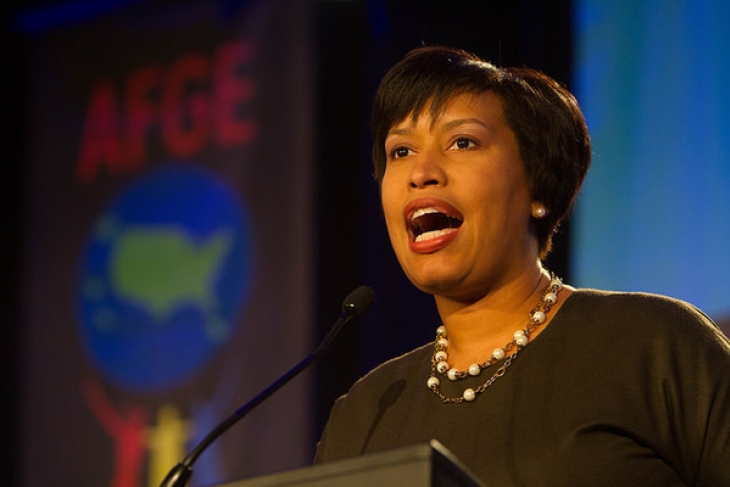Mayoral control should not mean unchecked control over data and information.
Each time there’s an educational scandal (and they occur like clockwork), understandably concerned residents and writers argue: We can’t “go back.” And we can’t.
But we also can’t go forward without a hard look at our situation. Improvement requires honesty and diagnosis.
The argument for mayoral control of education, here and elsewhere, is that it leads to greater accountability. Results would come more quickly, especially for lower-achieving students. Politics would not infect and slow reforms. The mayor could bulldoze through obstacles.
But the District’s mayoral control is unique. The mayor names all three major education leaders: the chancellor of D.C. Public Schools, the deputy mayor for education and the superintendent of the Office of the State Superintendent of Education (OSSE).
Everywhere else, mayor-controlled school districts are part of a state. These districts are overseen by politically independent state education agencies run by politically independent state superintendents, overseen by state boards of education. The state superintendent is typically named by and responsible to the board or the governor or some combination. Crucially, these state superintendents are not responsible to the same mayor who appoints the district chancellor and who is politically tied to the district’s results.
Only in the District is there no independent entity that vets data, conducts independent evaluations, and reviews policy. We are unique for the unchecked power we give our mayor over policy and information. Data can be spun, uncollected or unreported; investigations can be partial or slow-walked. Information lives in a silo. The National Academy of Sciences called out the District three years ago for its lack of independent, transparent education data.
It is no slight on the integrity of any individual to acknowledge the conflicts this creates in reality and perception. We have no checks and balances.
The only real accountability is from the media. A reporter from WAMU told the truth about our graduation standards. WJLA-TV exposed the immense, scandalous pressure driving educators to graduate students (a reality still mainly unacknowledged by city officials). The Post uncovered fraudulence behind lower suspension rates. The media revealed that multiple city officials were allowed to avoid the school-choice lottery; residency rules were ignored, denying coveted slots at Duke Ellington School of the Arts and elsewhere to D.C. residents; and lawyers in the state education agency allegedly slow-walked the investigation to avoid “negative publicity during a mayoral election year.” Washington City Paper reported on sweetheart contracts in the city’s charter sector, enabled by the very limited public oversight of charter schools.
For the umpteenth year, charters and DCPS misspent their at-risk dollars. The media reported this. Twitter was on fire. Advocates testified repeatedly. But, despite constant scoldings by the D.C. Council’s Education Committee, nothing has changed. No accountability.
Some argue that all is well and no change is needed; indeed, the mayor has called the parade of scandals a “bump in the road.” But only an ostrich could believe this.
As the National Academy of Sciences and others have argued, we can’t improve if we don’t know what the problem is—and certainly not if we deny that there is a problem. This isn’t an esoteric argument about governance. Our lack of understanding about what’s working and what’s not is crippling our ability to better educate our kids.
The choice is not between the status quo and “going back.” We can take sensible steps to rectify the data void that allows spin to substitute for improvement. Two important steps:
- Make OSSE independent of the mayor. The D.C. Council should consider how to move OSSE out from under the mayor, giving the agency the political independence that state education agencies have in other jurisdictions. We can’t control every aspect of our non-state status, but we can blame only ourselves if we eschew the checks and balances that exist in every state and consign ourselves to constant data spin and data darkness.
- Create an independent research collaborative. A supermajority of D.C. Council members have co-sponsored a proposal from council member Mary M. Cheh (D-Ward 3) to establish such a collaborative, and the council included start-up funding for it in the new budget. It would work with education and community partners to use new and vetted data to research priority topics and provide ongoing information to schools. Which reading programs are working best and why, and for which students? Which practices work best to lower suspension rates and improve achievement? What interventions work best with traumatized students?
The school district with the greatest recent progress is Chicago’s, not the District’s. Experts believe the Chicago school system’s collaboration with an independent research consortium, helping schools to diagnose and remedy a succession of problems, has been central to its success.
We shouldn’t “go back.” But we also shouldn’t stand still in the face of scandals and failure. Let’s go forward. Let’s make the necessary modifications so we are not making education policy in an environment where comforting falsehoods outweigh inconvenient facts.
Editor’s note: This piece originally appeared in a slightly different form in the Washington Post.
The views expressed herein represent the opinions of the author and not necessarily the Thomas B. Fordham Institute.

